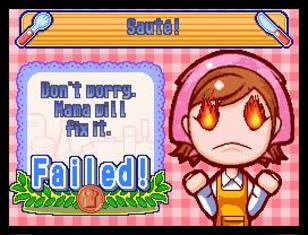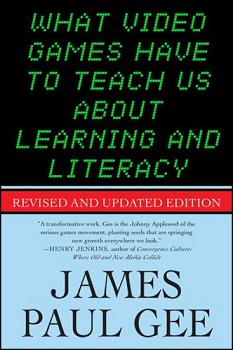[Is it possible that the rise of the Evil Casual Gaming Empire isn’t such a bad thing after all? Casual Difficulty considers the effects—both good and bad—that casual gaming has had on hardcore gamers. Think of this semi-regular column as a peace pipe extended from our gnarled FPS-worn hands to the soft, innocent hands of our casual brethren and sistren. In this Casual Difficulty, a look at in-game tutorials.]
Like alcohol and regret, games and tutorials go hand in hand. Often within a game’s first five minutes, you’re introduced to its basic mechanics in the form of a conventional tutorial. “Push A to jump”, and you jump over a pile of inert bricks. “Press the right trigger to fire”, and you shoot at a sinister-looking pile of garbage. By the end of that opening five minutes, you’ve jumped over and shot at every rubber tire, empty bottle, chain-link fence, and sewer rat in a 100-foot radius.
But tutorials serve an important purpose. For experienced gamers, tutorials are like taking a few warm-up laps before a race—they give us a quick sense for any idiosyncrasies in a game. And for less experienced gamers, they’re a chance to learn the basics so that beginners don’t run around pointing their guns at the sky, spinning in endless circles.
However, in many titles made for the casual crowd, tutorials have grown into something much bigger. There’s a whole cottage industry of “how-to” games that are nothing but long tutorials. A series of instructional cooking games have appeared on the DS, and fitness games are the latest cash-grab for motion gaming on the consoles. Nimble Strong on the iPhone will teach you how to mix a bevy of potent potables. Hell, even the upcoming Rock Band 3 claims that it can teach people to play real musical instruments.
The obvious difference, of course, is that these “how-to” games teach you real-world skills, while traditional titles only teach you game-specific skills. But is the difference really as obvious as it seems?
What these casual game designers seem to have discovered is that almost all games—both hardcore and casual—are, in fact, nothing more than full-length tutorials. By the time we reach the end of any game, we will have learned the ins and outs of a title’s various combat and control systems, the various button combinations, spawn patterns, level layouts, how to defeat certain enemy types and AI opponents, and so on. The “end” of a game is signified as much by the story’s end as it is by our finally learning everything it has to offer us, perhaps extended into New Game Plus or a higher difficulty setting.
 A well-designed game will continue challenging us to learn more enemy behaviors and boss patterns right up through the final climactic battle. In the God of War series, for example, we continue learning new attacks and combos up until the game’s final moments. Only then do we feel like a match for the gods because we, too, have become as knowledgeable and powerful as they are. The same can be said for most RPGs, shooters, action games, adventure games, platformers, and nearly any other genre.
A well-designed game will continue challenging us to learn more enemy behaviors and boss patterns right up through the final climactic battle. In the God of War series, for example, we continue learning new attacks and combos up until the game’s final moments. Only then do we feel like a match for the gods because we, too, have become as knowledgeable and powerful as they are. The same can be said for most RPGs, shooters, action games, adventure games, platformers, and nearly any other genre.
Game design works by dangling a carrot directly in front of us. We believe that all we need to do is learn just one more skill to be able to reach it. And just when we finally learn that skill, the carrot is moved just a bit further out of reach. Rinse. Repeat. Only in a game’s closing section will we have learned enough to be a match for our arch-nemesis and finally reach that carrot.
Often, games will also include power-ups, items, and weapons that we acquire along the way. We usually get a quick tutorial on how to use these, and off we go to take on bigger and badder things. Our arsenal is a direct reflection of the knowledge we’ve gained over the course of a game.
The various beams and visors we discover in the Metroid Prime games aren’t just tools. The weapons we trick out in Mass Effect aren’t just gear. The gadgets we get in Batman: Arkham Asylum aren’t just wonderful toys. They’re virtual extensions of our increased knowledge base.
In games, knowledge is literally power.
But what we learn in most games begins and ends in the world of that specific game. You can’t take your superhuman powers with you into the real world. Sometimes we can apply some of that know-how to a game’s sequel or to a similar game in the same genre, but generally speaking, once we’ve learned all we can and kill the final boss, the usefulness of that knowledge dies, too.
So, then, what does this have to do with the recent glut of “how-to” titles made for the casual market? As I said above, these games seem to have real applications outside of gaming. Learn a recipe in a game, and you learn it in real life. Follow instructions on a game screen, and you can learn actual fitness techniques.
 The lesson in all of this is that games have the potential for a deep and very real power over us through an understanding of tutorials—what I’ll call here the “tutorial effect”. We’re beginning to see signs of this in traditional titles made over the past few years, core games that have come into being alongside these training games developed for the casual market.
The lesson in all of this is that games have the potential for a deep and very real power over us through an understanding of tutorials—what I’ll call here the “tutorial effect”. We’re beginning to see signs of this in traditional titles made over the past few years, core games that have come into being alongside these training games developed for the casual market.
One need look no further than (*spoiler alert*) the “Would you kindly?” twist in Bioshock. In that moment, we are forced to acknowledge that we’ve unwittingly given ourselves over to the powerful “tutor” guiding our every action, telling us what to do, and how to do it. This isn’t something that happens only to Jack, the title’s main character; those of us sitting on our couches playing along at home are real-life suckers who have also been duped by Fontaine.
Assassin’s Creed riffs on this inherent quality of games, too. We learn along with Desmond how to move Altaïr through the cities of Jerusalem, Acre, and Damascus. Desmond has forcibly been put into a virtual trainer in order to follow Altaïr through the learning process of becoming an assassin. And the eerie ending of the sequel directly involves us in that tutorial process. We learn the truth just as Ezio and Desmond both learn it. It’s a jarring intrusion of the game’s narrative into our living rooms—into the real world—by means of an extensive and elaborate tutorial.
No, we don’t actually learn to harvest young girls for their genetic material, nor do we learn parkour in the Middle East, but there’s an uncanny moment in games like Bioshock and Assassin’s Creed when we almost believe for a second that we have. Maybe it’s this quality in games that scares certain people in the mainstream media; maybe they’re afraid we’re actually learning to shoot, actually learning to drive like maniacs, or actually learning to solicit prostitutes.
In one of the more creative uses of in-game tutorials, Red Dead Redemption uses moments of teaching as narrative bookends. What you learn in these tutorials has almost no application, even within the game world. Red Dead Redemption is no ranch simulator. Instead, learning to be a good cattle rancher—first on the MacFarlane ranch, then on your own—is a moment of deep emotional connection. The process of one character teaching another “how to play” is an emotionally rich act. It’s a testament to the power of the “tutorial effect” that all games have—but it’s an effect that few titles take advantage of.
I’m not saying that we learn any practical skills from most games, but the power of games comes from their ability to convince us—even if it’s just a fleeting illusion—that maybe we actually do learn something real. The Wachowski brothers were onto something when they had Neo learning real skills in a virtual environment. Like the fear that stays with us after a horror movie or the adrenaline we feel after an intense action flick, what we learn in games seems to follow us even after the credits roll.








